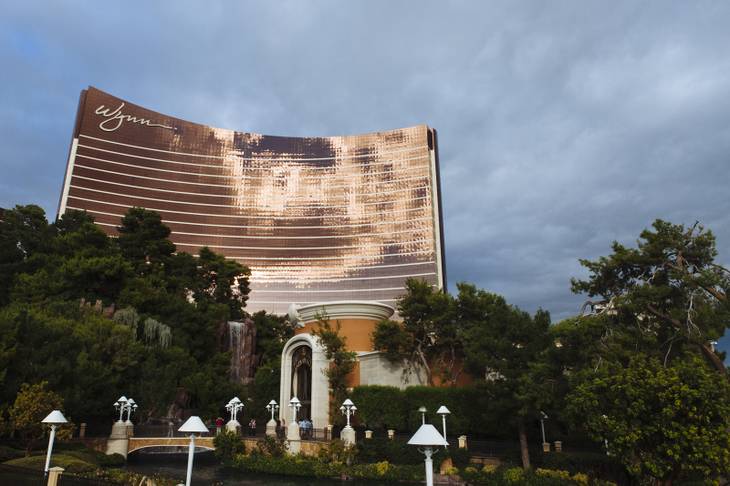The Public Utilities Commission clarified regulatory language on Wednesday, allowing three gaming companies to purchase energy on the open market. But the gaming companies did not get nearly all they asked for. They still face a collective $126.6 million in fees and additional future fees, which could dampen their desire to leave NV Energy.
Las Vegas Sands Corp., MGM Resorts International and Wynn Las Vegas LLC filed applications last year asking the commission, which regulates NV Energy, for permission to leave the utility.
The companies will likely continue exploring an array of options, which could include paying the fees to leave NV Energy, deciding to stay with NV Energy or appealing the rules in court.
Companies could also negotiate a deal with NV Energy, as data company Switch did last year.
Without the language approved today, casinos said they would have been unable to leave NV Energy because they could not have proven they were buying energy from new sources.
“It was considered to be almost a poison pill that would have made it virtually impossible to buy on a market,” former Republican Gov. Bob List, chairman of the Nevada Coalition to Protect Ratepayers, which supports the efforts of casinos and rooftop solar, said Tuesday.
If the companies were to leave NV Energy, they would need to buy energy from sources not connected to the utility. The way the commission originally interpreted this provision left a degree of ambiguity. Energy suppliers often purchase energy on trading markets, where NV Energy buys and sells energy. As a result, energy purchased on behalf of a gaming company in those markets could have at some point been connected to NV Energy, leaving the company unable to prove with certainty that it was using electricity unconnected to NV Energy.
Commissioners clarified the issue, saying Sands, Wynn and MGM Resorts could acquire energy on the open market without having to track from where the electricity originated.
The language change was a win for casinos that argued the original rule had the effect of blocking them from leaving NV Energy and purchasing electricity from other sources, including on the open market.
"We are pleased that the commission granted our request for reconsideration on some of the major issues in this filing," Clark Dumont, MGM's senior vice president of corporate communications, said in a statement after the meeting.
But despite fixing that “poison pill” provision, the commission denied requests made by the gaming companies to lower exit fees associated with leaving NV Energy and adjust the method for calculating fees, leaving it uncertain whether the companies will decide to leave.
In December, the commission approved fees that total over $125 million — $89.9 million for MGM, $15.7 million for Wynn, $23.9 million for Sands. The gaming companies, which make up about 7 percent of NV Energy’s customer base, would have to pay future fees as well.
In a filing, Sands said the fees “effectively denied” its application to leave NV Energy.
At the hearing, the commission decided not to lower the fees. Commissioner David Noble said NV Energy ratepayers would have to pay if casinos did not pay the full exit fee.
“It would be remaining customers who get stuck with that bill,” he said.
It also rejected another issue one casino raised. Wynn had taken issue with the way the fees were calculated. The fees were assessed on the assumption that all three companies would exit, which increased the projected impacts of their exits. Wynn also asked the commission to reconsider aspects of the fees based on NV Energy’s future supply and demand costs.
Future fees could cause issues for a public company because they would be variable and hard to predict.
The casinos are looking to leave NV Energy under a 2001 law that came about during the Western energy crisis and was created when the utility generated less than half its power. It was originally a way to bring in new generation to the state at a time when supply was low.
In recent months, some large organizations looking to leave the grid have negotiated directly with the utility. After the commission denied data company Switch’s application last year, the firm, a large consumer of electricity, made a compromise with the utility so it could rely only renewables. The city of Las Vegas announced a similar deal with the utility last year.
In late November, NV Energy CEO Paul Caudill indicated openness to working with the casinos. “We don’t fight with our customers,” he said. “We look at it as an opportunity to work even closer with them.”
